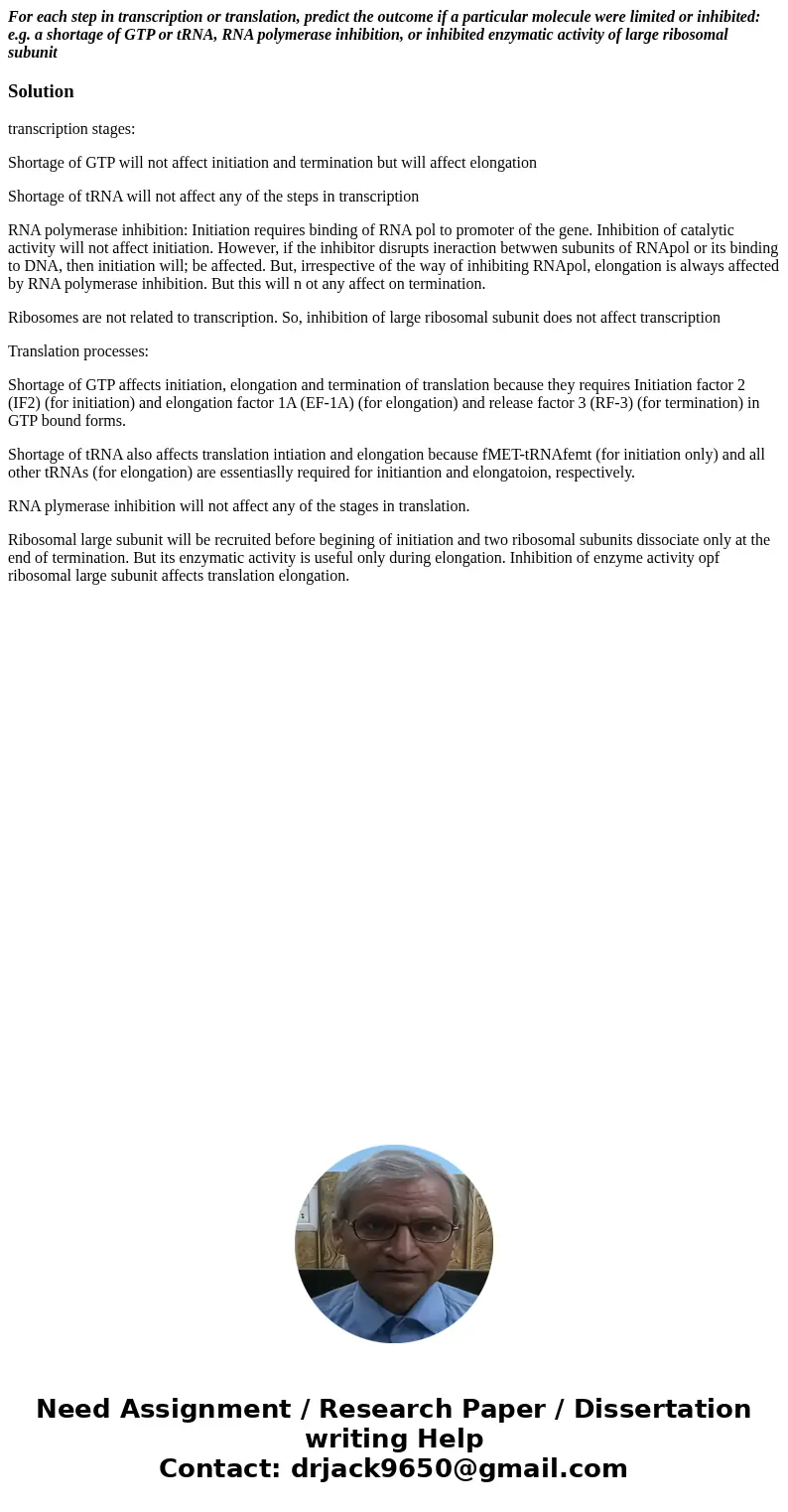For each step in transcription or translation predict the ou
For each step in transcription or translation, predict the outcome if a particular molecule were limited or inhibited: e.g. a shortage of GTP or tRNA, RNA polymerase inhibition, or inhibited enzymatic activity of large ribosomal subunit
Solution
transcription stages:
Shortage of GTP will not affect initiation and termination but will affect elongation
Shortage of tRNA will not affect any of the steps in transcription
RNA polymerase inhibition: Initiation requires binding of RNA pol to promoter of the gene. Inhibition of catalytic activity will not affect initiation. However, if the inhibitor disrupts ineraction betwwen subunits of RNApol or its binding to DNA, then initiation will; be affected. But, irrespective of the way of inhibiting RNApol, elongation is always affected by RNA polymerase inhibition. But this will n ot any affect on termination.
Ribosomes are not related to transcription. So, inhibition of large ribosomal subunit does not affect transcription
Translation processes:
Shortage of GTP affects initiation, elongation and termination of translation because they requires Initiation factor 2 (IF2) (for initiation) and elongation factor 1A (EF-1A) (for elongation) and release factor 3 (RF-3) (for termination) in GTP bound forms.
Shortage of tRNA also affects translation intiation and elongation because fMET-tRNAfemt (for initiation only) and all other tRNAs (for elongation) are essentiaslly required for initiantion and elongatoion, respectively.
RNA plymerase inhibition will not affect any of the stages in translation.
Ribosomal large subunit will be recruited before begining of initiation and two ribosomal subunits dissociate only at the end of termination. But its enzymatic activity is useful only during elongation. Inhibition of enzyme activity opf ribosomal large subunit affects translation elongation.

 Homework Sourse
Homework Sourse